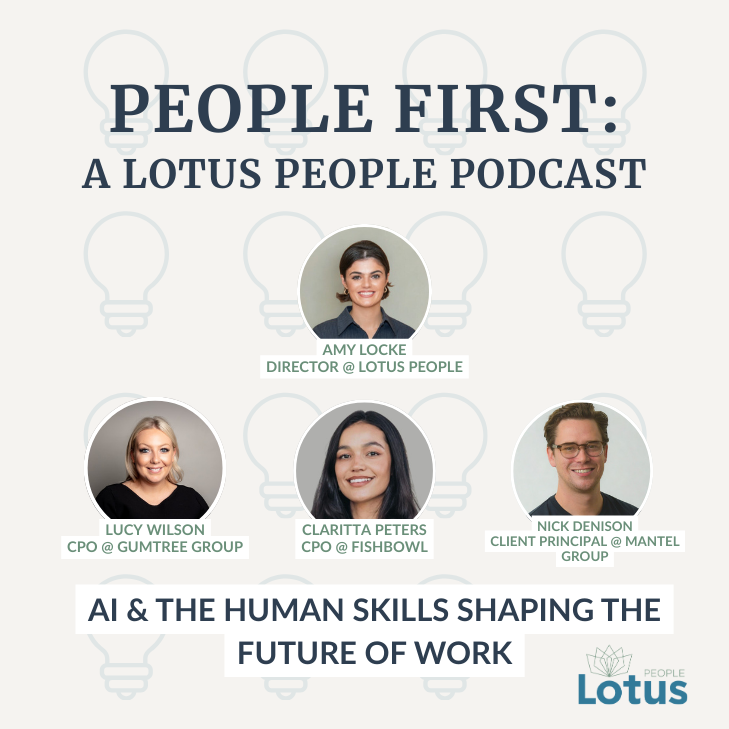In today’s competitive job market, finding the right candidate goes beyond just reviewing resumes and conducting standard interviews.
An effective interviewing process not only helps you identify top talent but also enhances your company’s reputation and ensures a positive candidate experience.
Together, we will explore five practical and impactful ways to improve your interviewing process, making it more efficient, insightful, and candidate-friendly. Whether you're a seasoned HR professional or just starting out, these tips will help you refine your approach and secure the best talent for your organisation.
1. Define a Clear Role Brief
A well-defined role brief is fundamental to an effective hiring strategy. Before commencing the recruitment process, ensure you have a thorough understanding of the required skillset and experience for the role. This should involve a detailed meeting with the hiring manager and potentially other team members and stakeholders within the organisation. Consider what your organisation can offer a new hire, how to attract candidates to the role, and the ideal candidate profile that will align with the team and be a valuable culture addition.
A clear role brief will help shape your approach to advertising, screening, interviewing, and ultimately, deciding which candidate to offer the position. It acts as a roadmap, guiding you through the recruitment process and ensuring all stakeholders are aligned. Without this clarity, you risk making poor hiring decisions, which can cost your organisation time, money, and potentially harm its reputation.
2. Pre-plan your Interview Questions
Planning your interview questions in advance is beneficial for several reasons. Primarily, it ensures you can assess all necessary skills and attributes outlined in the role brief, leaving no gaps in evaluating key requirements.
Pre-planned, structured interview questions help eliminate unconscious bias from the hiring process. When questions are asked spontaneously based on the flow of the interview, there's a risk of asking different questions to each candidate, leading to an unfair and biased evaluation.
For interviewers who are less experienced or confident, having a set of prepared questions provided by the hiring manager or a talent acquisition specialist can be invaluable. It ensures the interview stays on track, the right questions are asked, and the interviewer feels more at ease. This preparation leads to a more positive experience for the candidate and ultimately increases the likelihood of a successful hire.
By planning in advance, you create a fairer and more consistent interview process that benefits both your organisation and the candidates.
3. Streamline and Outline the Interview Process
A good interview process should be as streamlined as possible, ideally comprising 2-3 stages. An unnecessarily long process can cause candidate fatigue and risk the loss of strong potential hires, as well as wasting considerable time for stakeholders involved in hiring.
The most effective interview process should be determined and communicated before any interviewing commences. It is important to agree in advance how many interview stages are necessary and the interviewers who will be on the panel at each stage. This foresight helps prevent delays in the hiring process and reduces the risk of losing your preferred candidate due to a slow-moving process.
Recruitment is competitive, and candidates often have multiple interview processes in play at any one time, therefore it’s crucial to set clear expectations of the timeline from start to finish.
Pre-planning your interview process also allows interviewers to block time in their schedules for conducting interviews and meeting with relevant stakeholders to discuss feedback and outcomes, ensuring decisions are made promptly. There’s nothing worse than reaching the final stage only to discover a key stakeholder is unavailable to interview, causing significant delays.
If a candidate cannot wait, it could derail the entire interview process and force you to start over.
4. Involve More Than One Interviewer
One-on-one interviews have their advantages; they can make candidates feel more comfortable, encourage them to open-up, and help to establish a better connection with the interviewer. However, relying solely on one interviewer presents significant risks due to individual unconscious biases. Every person has their own unique views and perspectives, leading to different observations of character. Therefore, having a single interviewer increases the risk of unconscious bias affecting the interview process. Additionally, without another person to discuss concerns or impressions with, the interviewer may second-guess themselves or feel uncertain about their judgment.
While panel interviews can be more nerve-wracking for candidates and require more logistical coordination, they bring diverse perspectives to the process. Multiple interviewers can provide varied input, leading to more balanced and comprehensive evaluations. This approach reduces the risk of bias and ensures a fairer assessment of each candidate.
If one-on-one interviews are necessary for certain stages, consider involving multiple interviewers in subsequent stages. This way, interviewers can discuss their feedback and impressions together, ensuring a more rounded evaluation before making any decisions.
Incorporating multiple interviewers at each stage enhances the reliability and fairness of your hiring process, ultimately leading to better hiring decisions.
5. Outline Next Steps, and Provide Clear Feedback
In recruitment, it's unfortunately too common for candidates to come out of interview processes without a clear understanding of why they weren't selected or how they could improve their performance next time.
With a structured interview process in place, timeframes and next steps should then clearly be able to be communicated to candidates at each stage of the process. Using vague statements like "We’ll call you" does not provide candidates with confidence and can lead to losing control over the process.
At the conclusion of an interview, transparency is key. Inform candidates about the next steps in the hiring process and provide a timeframe for when they can expect to hear from you. Feedback should be prompt, ideally within 48 hours, and should be specific, constructive, and provided regardless of the candidate's success in advancing to the next stage. Not only does this assist candidates in refining their interview skills, but it is just good human behaviour.
Consistency is crucial. If you've promised to contact candidates by a certain date, ensure that you do—even if it's just to communicate a delay in the decision-making process. Transparency not only enhances the candidate's interview experience but also positively reflects on your organisation's employer brand.
If you want to learn more about the best ways to retain and engage the best talent in the market, reach out to us by clicking below!
You may also like...





